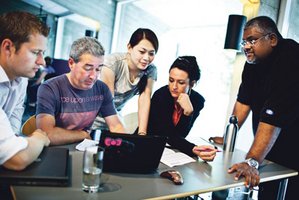
By David Vranicar
dav@adm.au.dk
Luckily for foreigners at Danish universities, research doesn’t always jibe with politics.
There is no shortage of examples of the Danish government’s push to implement more stringent immigration policies. Take, for instance, the proposed “points system” for foreigners wanting Danish citizenship. Or the increase in the amount of money that foreign students must have before entering the country.
But a study by a pair of Aarhus University professors suggests that, despite stiffening immigration regulations, there is some good news for foreigners in Denmark.
AU professors Jakob Lauring and Jan Selmer recently published research results analyzing how foreigners are received as co-workers at Danish universities. According to their findings, those from abroad should feel right at home.
“We were targeting multicultural university departments and how different types of diversity affected group outcomes,” Lauring explains. “And our general result was that, whereas some types of diversity affected group outcomes negatively, cultural diversity had a strong positive impact on group outcomes.”
Lauring and Selmer sent out about 1,000 surveys to departments at universities all over Denmark, about 500 of which were returned. And while the results indicate that some forms of diversity are actually detrimental to group outcomes – such as age diversity and even gender diversity – cultural diversity was, on the whole, seen as a positive.
“Within the university system there has been some opposition to being more internationalized,” Lauring explains. “But it seems that since these foreigners bring with them valuable knowledge, they bring something that is highly valued within the academic system, and therefore they’re valued as co-workers and people like to work together with foreigners and eventually perform better.”